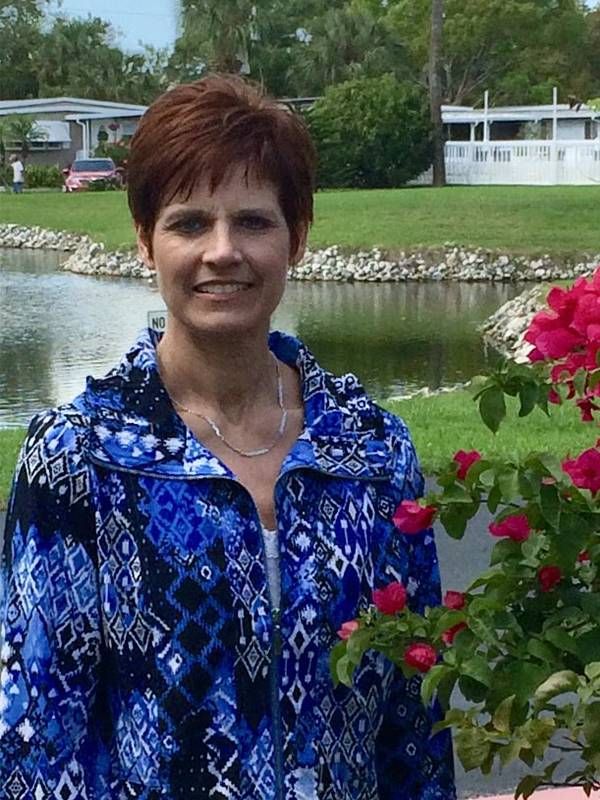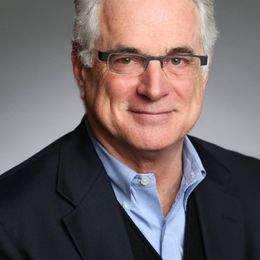Unemployed, But Too Young to Retire
The growing problem facing women in their 50s and 60s
An email I received from Caryn Lindsay of St. Paul, Minn., grabbed my attention because her story, sadly, is all too common these days. Lindsay, who's 58 and single, was worried that she'll need to dig further into her retirement funds and remain on Medicaid when her unemployment benefits run out. She was furloughed from a job as director of study abroad and global learning in August 2020.

She wrote:
… with no revenue from study abroad, the office could not support my salary. I have been trying to pivot away from study abroad in my job search, but when faced with me and someone who — as one potential employer put it — 'could be up and running quickly' I fall out of the competition…
I met with Lindsay and her friend Jill Bjorklund, 59, over Zoom several weeks ago to learn more about their situations. Bjorklund had been a project coordinator for the Minneapolis Public School system earning around $80,000 until her position was cut in July 2021.
The Barriers for Some Looking for Work in Their 50s
Both women were thoughtful and articulate in discussing their professional histories and observations about the job market. Considering their professionalism, knowledge and skills you would think any employer would leap at the chance to hire them and pay them a salary commensurate with their expertise and experience.
But their difficult job search experience is widely shared, especially among women at midlife and older. As Ramona Schindelheim, editor-in-chief of WorkingNation, recently wrote on Next Avenue, adults in their 40s, 50s and 60s now make up half of the long-term unemployed (those out of work for more than six months) in the United States.
"A lot of middle-aged women who want to work are stuck."
The pernicious combination of ageism and age discrimination is a barrier for even talented professional women, something 2021 Influencer in Aging Guadalupe Hirt (co-founder of the company SecondActWomen) noted during a Century Summit panel.
"A lot of middle-aged women who want to work are stuck," says Bjorklund. "We are too early to retire and too old to get re-employed. More and more women are in that position."
Research supports her observation.
An AARP survey published in September 2021 said that 31% of women ages 40 to 65 looking for work cited age discrimination as an impediment to finding a job.
Age Discrimination Is Severe for Older Women
Among the most striking conclusions from a review of the age discrimination scholarly literature by Tulane University economist Patrick Button was evidence that discrimination against older women is "much more severe" compared to their male peers.

This is why my default position is to doubt employers who say they can't find the talent they need. Ancient and hoary stereotypes blind them to hiring opportunities.
"Sadly, we know there are headwinds for older job seekers, tending to be worse for women," says Catherine Collinson, CEO and president of the Transamerica Institute and the Transamerica Center for Retirement Studies.
That's certainly been the case for Lindsay and Bjorklund. Lindsay is still looking for work; Bjorklund found employment that offers her purpose and a paycheck, but her new paycheck is one-third less than her previous one.
Here's a bit about their experiences:
Lindsay had a career in the federal government and, for the last 15 years, in higher education focused on study abroad programs. She was furloughed from her job at Western Kentucky University when the pandemic struck because it became so hard for U.S. students to study globally.
Lindsay moved back to St. Paul to take care of her mother while looking for work. She was reluctant to apply for public benefits, but eventually filed for unemployment insurance and went on Medicaid.
"Jill reminded me that you have been paying into the system your entire career; don't feel bad," she told me.
Lindsay is doing everything that job search experts recommend, such as networking, tapping into the power of social media and exploring different career options. She's confident she'll find a good fit.
"I have a lot of broad experience that could be used in any sector," she says.
Bjorklund describes her career as something of a "mix and match" experience. She worked part-time for 11 years while raising children and spent the past four years with the Minneapolis Public School system before her layoff.
Finding Purpose, But a Smaller Paycheck
Bjorklund wasn't particularly upset about losing her job, considering her 45-minute commute in often heavy traffic. And when she'd been unemployed while younger, it never took long to land another position. Not this time.
She found herself in "a situation where you interview and are feeling overqualified and no follow-up interview and no job offer."
She found herself in "a situation where you interview and are feeling overqualified and no follow-up interview and no job offer."
Her new job is with a local nonprofit, helping some people buy homes and others avoid foreclosure. She acknowledges it's somewhat disconcerting to think that her recent college graduate children are making the same amount, or more than she is.
But Bjorklund loves the work. "More important to me is to find a place where it is purposeful and I am making a difference and still learning something," she says.
The classic job-hunting guidelines for midlife- and older job seekers still hold true: Networking is critical. Professionals should update their skills, these days including on social media platforms like LinkedIn.
Starting a side hustle, getting gig work or launching a self-employment venture can bring in income while pursuing full-time employment, too.
"Last, so important, is if you're not working — get out and do some volunteer work," says Collinson. "It's important to give, to have a sense of purpose. You're also building up your network."
Older job seekers also need to keep up their confidence and self-esteem, though that can be difficult.
"It's so easy to develop a negative mindset about yourself," cautions Dorian Mintzer, an author, therapist and life and retirement transition coach. "It's important to think of ourselves separate from work. Really work against the feeling of being unimportant."
The stakes are high for out-of-work women in their 50s and 60s. Employer hostility and hiring management indifference are damaging to their long-term financial health as well as the economy's vitality and dynamism.
"There is a cost to society because there will be more of us in this situation," says Lindsay.


